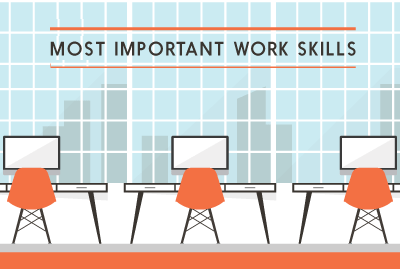
Just before the pandemic hit, Gallup indicated that employee engagement levels across the U.S. had reached an all-time high since they began tracking the metric in 2000; and they shared a straightforward reason why.
“Gallup research indicates that changes in employee engagement are best attributed to changes in how organizations develop employees,” they said.
The Best Skills to Develop?
If the value of personal or workforce development resonates, you might be wondering about the best choices of skills to reinforce or develop – for yourself and/or your workforce.
Along those lines, a recent article published by Chief Learning Officer shares insight on the emerging importance of “soft” or “people” skills, noting that they will “represent the new digital currency on the other side of these turbulent times.”
Written by Summer Salomonsen, Ed.D, head of Cornerstone Studios, the piece goes on to reference a report from McKinsey, which estimates millions of global workers will be replaced by robotic automation by 2030.
“The hard skills (technical skills) of today are expiring faster and faster,” Salomonsen says. “This is precisely why the people skills investment is so important — and making this case for our business leaders will ensure our collective path to success. In the new skills economy, people skills are king.”
Among the skills she identifies as “in demand” or as necessary to excel in today’s workplace are:
- Leadership
- Effective communication
- Teamwork
- Persuasion
- Negotiation
- Emotional intelligence
- Empathy
- Sales
- Customer service
Similar perspectives were recently shared by the Forbes Human Resources Council, an invitation-only organization for HR executives across all industries.
“Assessing soft skills should be an essential part of your hiring process,” they said. “Soft skills strengthen other skills and abilities, and teams with these skills will be equipped to adapt more quickly and easily as the future of work continues to evolve.”
In 2017, Deloitte also reported that “soft skill-intensive occupations will account for two-thirds of all jobs by 2030” and that hiring employees with more soft skills could substantially increase revenue.
Finally, in a more recent article, indeed.com, one of the world’s leading job sites, noted the importance of people skills in the workplace. “Interpersonal skills are important for communicating and working with groups and individuals. People with strong interpersonal skills tend to build good relationships and can work well with others. Other benefits of interpersonal skills include the ability to solve problems and make good decisions.”
How to Get Started?
As you read the list of key skills above, did any of them stick out to you as opportunities for improvement, either for yourself or your team?
If so, FlexJobs career coach Brie Reynolds suggests the following ideas for cultivating “soft” or “people” skills:
- Focus on communication first. “Interestingly, the ability to communicate effectively is foundational to many of these skills,” says Reynolds. “Communication is the number-one skill… the bottom line is that employers place a high value on people who have excellent interpersonal and communication skills.”
- Conduct a self-audit to determine which soft skills you or your team feel strongest with and which ones you lack confidence in. “Asking people close to you, such as friends, family and coworkers, can also give you insights on where to go from here,” Reynolds said.
- Take a class. “There are plenty of free, online short and longer courses to help you strengthen your skills,” says Reynolds. “Then, once you’ve got a course under your belt, it’s time to practice — at work and in your personal life. You might also seek out new tasks or projects at work, in volunteering, in your community or at home where you can put these newer skills to use.”
- Interview someone who has the skill you want. “Informational interviews are also a great way to learn from other people who are already strong in the skills you want to build,” says Reynolds. “For example, if your sister-in-law has excellent stress tolerance and you’ve witnessed her staying calm in stressful situations, ask her how she approaches stress and what her advice would be for you to get better in this area.”